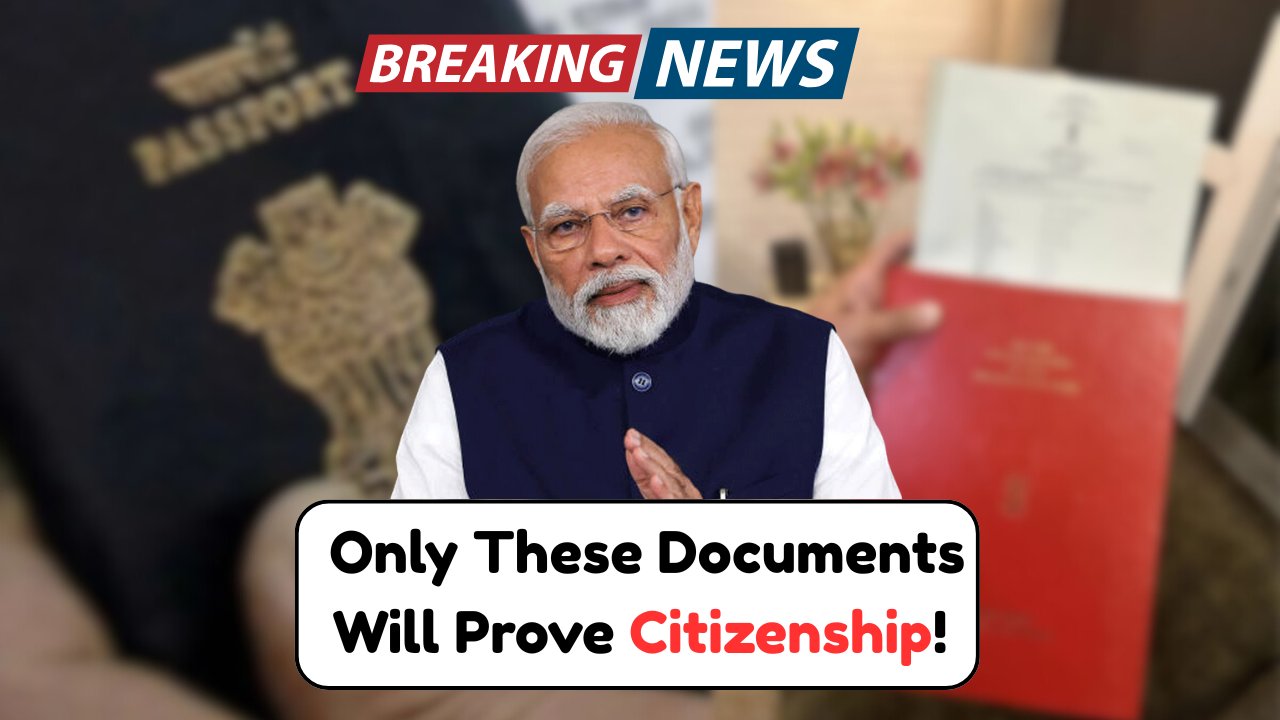Aadhaar and PAN Card : In a major shift in documentation policy, the Government of India has announced that Aadhaar cards and PAN cards will no longer be accepted as valid proof of Indian citizenship. This update has created widespread discussion across the country as millions of citizens use Aadhaar and PAN for various official purposes. As per the new rules, only two specific documents will now be recognized for proving citizenship status under legal and governmental scrutiny.
Why Aadhaar and PAN Card Are No Longer Accepted
The move comes in response to recent concerns regarding the misuse and misinterpretation of identity documents. While both Aadhaar and PAN are essential for financial and identification purposes, they do not serve as conclusive proof of nationality.
Key Reasons Behind the Policy Shift:
- Aadhaar is issued based on biometric and demographic information but does not verify nationality.
- PAN is primarily for income tax and financial tracking, not citizenship validation.
- Instances of Aadhaar and PAN being issued to non-citizens triggered the policy revision.
- The government aims to streamline and strengthen documentation under the Citizenship Act.
New Rules for Citizenship Verification
From now on, only the following two documents will be accepted as valid proof of Indian citizenship:
Accepted Documents for Citizenship Proof:
- Indian Passport
- Birth Certificate issued by a Government Authority
These documents directly establish a person’s nationality and are recognized under Indian and international legal standards.
Accepted vs. Rejected Documents
| Document Type | Previously Accepted | Status After New Rule | Purpose |
|---|---|---|---|
| Aadhaar Card | Yes | No | Identity & address proof only |
| PAN Card | Yes | No | Tax identification only |
| Indian Passport | Yes | Yes | Official citizenship document |
| Voter ID | Sometimes | Not Accepted | Electoral ID, not proof of birth |
| Birth Certificate | Yes | Yes | Establishes place of birth |
| Driving License | Sometimes | Not Accepted | Driving permit only |
| Ration Card | Sometimes | Not Accepted | Subsidy eligibility document |
| Utility Bills | Sometimes | Not Accepted | Address proof only |
What Citizens Need to Do Now
All Indian residents are urged to review and update their documentation, especially if they are planning to apply for any government schemes, citizenship certificates, or legal proceedings requiring citizenship proof.
Suggested Actions:
- Ensure your Indian Passport is valid and up to date.
- Retrieve a certified copy of your government-issued Birth Certificate.
- Avoid submitting Aadhaar or PAN as citizenship proof in legal or official matters.
- Contact local municipal offices for reissuance of birth certificates if missing.
Impact on Government Services and Schemes
The update will affect several services where Aadhaar or PAN were traditionally accepted, including:
| Service Area | Previous Requirement | New Requirement |
|---|---|---|
| Government Job Applications | Aadhaar/PAN | Passport/Birth Certificate |
| Voter Registration Verification | Aadhaar | Passport/Birth Certificate |
| Citizenship Amendment Processes | Aadhaar/PAN | Passport/Birth Certificate |
| Legal Citizenship Claims | Aadhaar/PAN | Passport/Birth Certificate |
| Ration Card Applications | Aadhaar | May require Passport |
Reactions from Public and Legal Experts
Legal experts have supported the move, citing alignment with global practices where only nationality documents like passports and birth certificates are used for citizenship verification. However, citizens without passports or proper birth records may face initial hurdles.
Concerns Raised:
- Citizens born before the digitization era may struggle to obtain birth certificates.
- Passport issuance can be time-consuming and expensive.
- Sudden change may lead to documentation backlogs in municipal offices.
How to Apply for the Accepted Documents
1. Indian Passport:
- Apply online via the official Passport Seva portal.
- Submit necessary documents like birth certificate, residence proof, and identity proof.
- Attend police verification and biometric appointment.
2. Birth Certificate:
- Visit the municipal corporation office where the birth was registered.
- Submit application form and affidavit if records are missing.
- Pay applicable processing fees and collect the certified copy.
The government’s decision to exclude Aadhaar and PAN from citizenship verification marks a significant administrative shift. While the change aims to tighten documentation norms and prevent fraud, it requires citizens to realign their paperwork with the new rules. Everyone is advised to start the process early and ensure they possess at least one of the now-accepted documents—Indian Passport or Birth Certificate—to avoid future complications.
